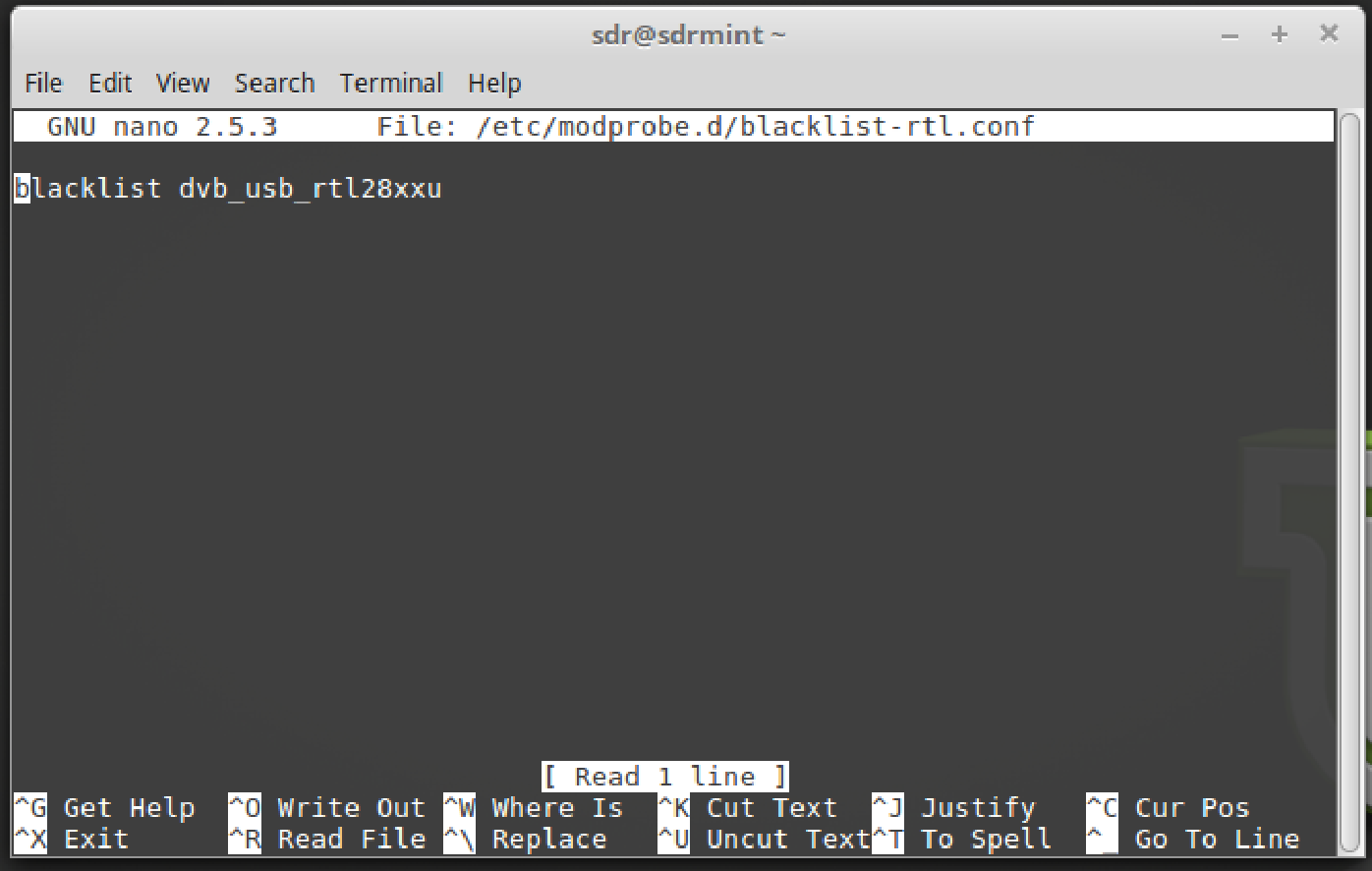Native rtl_sdr Setup¶
Clone and build¶
In your “wrk” Directory clone and build rtl_sdr
cd ~/wrk
git clone git://git.osmocom.org/rtl-sdr.git
cd rtl-sdr/
mkdir build
cd build
cmake ../ -DINSTALL_UDEV_RULES=ON
make
sudo make install
sudo ldconfig
sudo cp ../rtl-sdr.rules /etc/udev/rules.d/

Create further udev Blacklist file:
sudo nano /etc/modprobe.d/blacklist-rtl.conf
Append: blacklist dvb_usb_rtl28xxu to the file

To exit nano and save changes press CTRL-X, then type y, then
enter to save and exit.
sudo udevadm control --reload-rules && udevadm trigger
Reboot the VM / Restart PC
Connect to your RTL Stick (Virtual Box Menu Devices->USB-> Realtec RTL ) The name may depend on the manufacturer of your Stick
Open a terminal and enter
Run¶
rtl_test
check the output if it finds the stick:

press ctrl+c to cancel rtl_test.
For details see https://osmocom.org/projects/rtl-sdr/wiki
RTL_433 tool setup¶
in your “wrk” Directory clone and build rtl_433:
cd ~/wrk
git clone https://github.com/merbanan/rtl_433.git
cd rtl_433/ && mkdir build && cd build && cmake ../ && make
sudo make install
Start rtl_433 (RTL-SDR)
rtl_433

Even if you do not own your own temperature sensor you’ll get a good amount of measurements from your urban or non urban area.

More on https://github.com/merbanan/rtl_433
Special hint for all MQTT fanboys:
(mosquitto_pub can be installed by:
sudo apt install -y mosquitto-clients )
rtl_433 -F json -U | mosquitto_pub -t home/rtl_433 -l
If mosquitto runs on another server append:
-p port -u username, -P password -t topic -R 433MHz device number
rtl_433 -F json -U -R 32 | mosquitto_pub -h 192.168.x.xxx -p 1883 -u admin -P admin -t home/rtl_433 -l
Will pipe the output to network as JSON formatted MQTT messages.